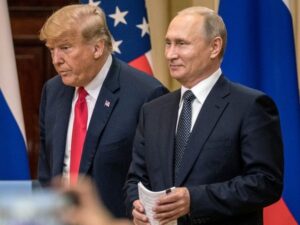
Italian bank Intesa Sanpaolo (ISP.MI) has secured approval from Russian President Vladimir Putin to sell or dispose of its assets in the country, a document posted on a Russian government website showed on Friday.
Reuters exclusively reported in August that Italy’s largest bank was getting closer to securing the approval to transfer its Russian business to local management as Moscow’s stance on asset disposals shifted. Intesa declined to comment.
Earlier this year supervisors from the European Central Bank stepped up pressure on lenders to cut their exposure to Russia.
The Italian bank entered the Russian market half a century ago by opening a representative office, which it decided to close in early August. Its local bank, which serves only corporate clients, had 861 staff and 27 branches as of June 30.
The decree, which was dated Sept. 28, cited another decree signed in August 2022 by Putin that gave him the power to issue special waivers for certain deals involving energy and finance assets to proceed.
The latest decree said Moscow was permitting transactions that would lead to the direct or indirect disposal of 100% of Intesa’s shares.
It stopped new financing to Russian clients and fresh investments in Russian assets when the conflict broke out.
The bank, however, has cross-border exposure to the country through loans its domestic business extended to Russian clients. That totalled 700 million euros ($741.51 million) at the end of June, net of provisions and export credit guarantees.
Russia has steadily tightened exit requirements since Western companies started leaving soon after Moscow began what it calls a “special military operation” in Ukraine in February 2022. Executives say navigating the rules is becoming harder.
Intesa had tried since last year to sever ties with its local business but Western sanctions hitting potential buyers have made it difficult for European banks, including rival UniCredit (CRDI.MI) and Austria’s Raiffeisen Bank (RBI) (RBIV.VI), to exit.
The green light for Intesa could pave the way for similar approvals for other lenders still entangled in Russia.






